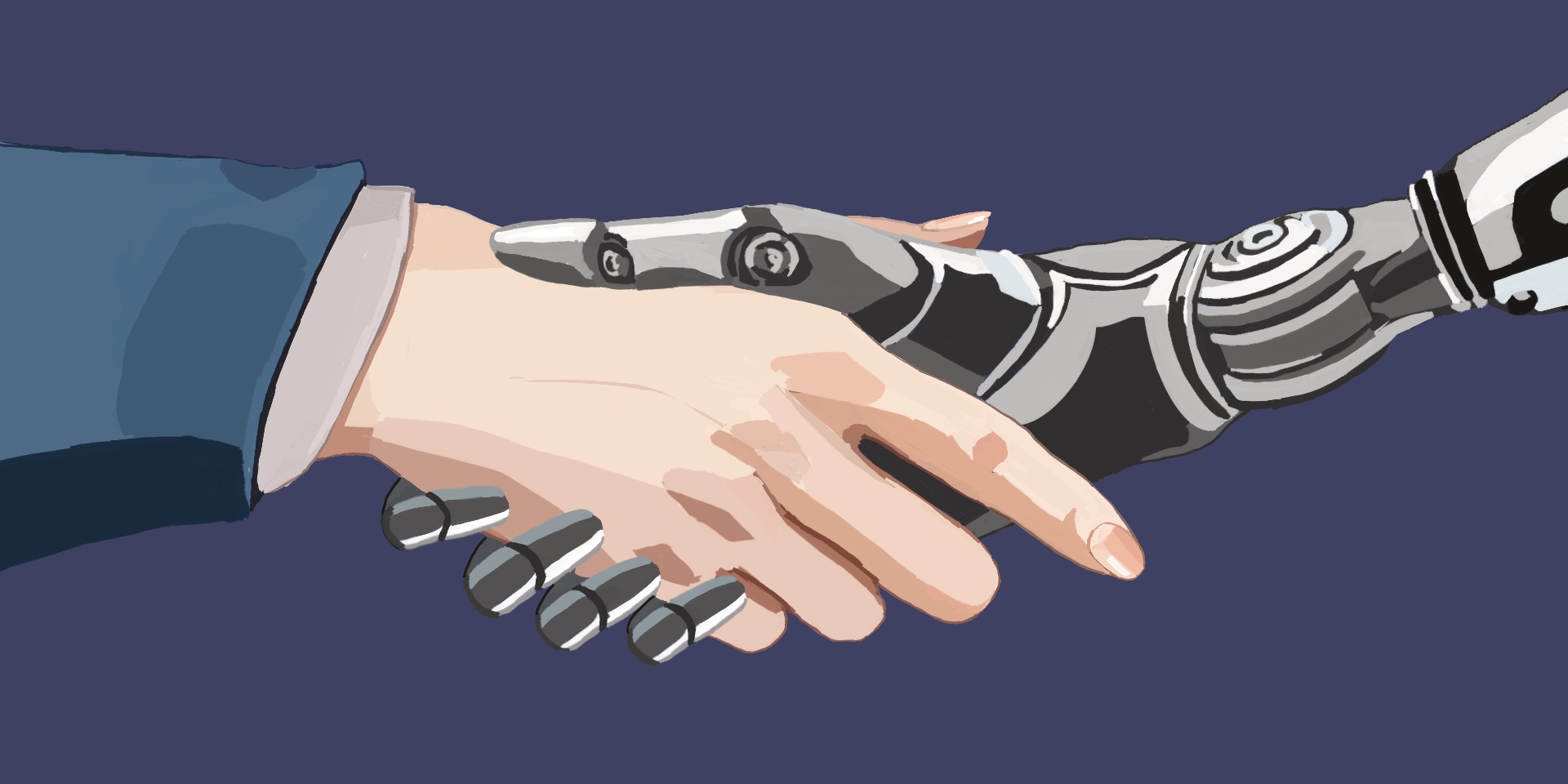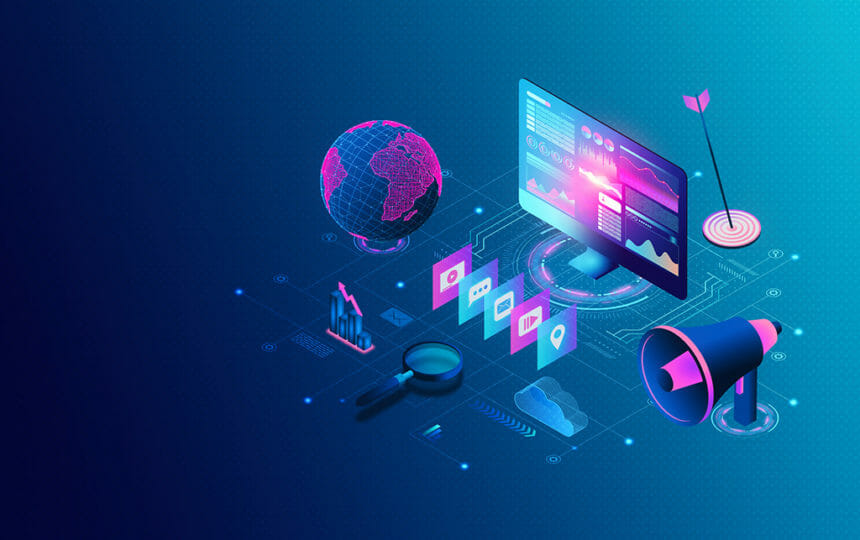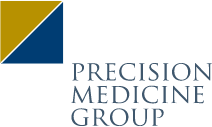The great resignation & the future of work: Carolyn Morgan of PRECISIONeffect on how employers and employees are reworking work together
First published in Authority Magazine.
Redefining the workday: Our people and their stories change more rapidly than in the “before times.” Initially, people wanted to be in the office or WFH. But after surveying our people recently, we found more folks want to WFH, with the next group wanting to come back 1–2 days. We have implemented a rapid and continuous feedback loop, so we check in and keep up with what our people want. But what we are finding most is that people want to have control of their own schedule.

When it comes to designing the future of work, one size fits none. Discovering success isn’t about a hybrid model or offering remote work options. Individuals and organizations are looking for more freedom. The freedom to choose the work model that makes the most sense. The freedom to choose their own values. And the freedom to pursue what matters most. We reached out to successful leaders and thought leaders across all industries to glean their insights and predictions about how to create a future that works.
As a part of our interview series called “How Employers and Employees are Reworking Work Together,” we had the pleasure to interview Carolyn Morgan.
Carolyn is EVP, Physician and Patient Engagement at Precision Value & Health and President of PRECISIONeffect, the nation’s only healthcare advertising and marketing agency dedicated to collaborating with companies seeking to change the standard of care. Since taking the helm in 2013, Carolyn has put her philosophy of “being for others” into practice, consistently leading the global agency to 20 percent year-over-year growth, a rate that far exceeds the industry average (in 2021, they increased revenue by 36%). Prior to becoming president, Carolyn managed the agency’s West Coast office for five years as managing director.
Thank you for making time to visit with us about the topic of our time. Our readers would like to get to know you a bit better. Can you please tell us about one or two life experiences that most shaped who you are today?
Amoment that had a profound impact on me happened when I was just 22 years old: I was fired from my first job. While painful, it became a defining moment. It knocked me down, but I got up, and swore it would never happen again. I was determined to succeed, and I am extremely grateful to my parents because they instilled in me a sense that nothing was out of my reach. I never thought I couldn’t. And in moments that I wavered they’d simply ask, “Well, why can’t you?” It gave me confidence and optimism. I was hired by my first agency two weeks later where I learned that hustle was rewarded. I was a natural in the fast-paced and highly demanding agency world. It was clear that hard work was the only way forward, so I never looked back.
Let’s zoom out. What do you predict will be the same about work, the workforce and the workplace 10–15 years from now? What do you predict will be different?
In 10–15 years, most people will be working remotely as they remain reluctant to commute an hour into the office. The need for human connection will always remain the same, and how we achieve that connection will change. I think we will have the technology to integrate virtual reality into the work experience to create a richer immersive experience and allow us to keep connections alive in our everyday lives when working virtually. We might be able to “sit” with our coworkers in a virtual setting to mimic the feeling of being at an office. We are human and need connection and nothing will replace that, but we will build on that need when working remotely through virtual interactions and treasuring in-person opportunities.
What advice would you offer to employers who want to future-proof their organizations?
Looking after and caring for your employees is futureproofing, as they are the heart and soul of your organization. With the “Great Resignation” well underway, recruiting and retaining talent is the major challenge for most agencies, as well as most businesses.
Creating a sense of belonging is crucial to keeping employees engaged. People feel safe at work when they are seen and recognized for their unique contributions, connected to their coworkers, supported in their daily work and career development, and proud of their organization’s values and purpose. As McKinsey notes, “Companies can achieve better long-term performance when they address the interests of employees, customers, and other stakeholders.”
Leaders must shift focus around the critical role of keeping people well, not just well paid, and looking after their welfare. This is the path to create and support a vibrant, productive, and loyal workforce. PRECISIONeffect is a “learning organization,” and we work to ensure all of our employees have the opportunity to develop their skills and areas of interest, both professionally and personally, making wellbeing a top priority.
What do you predict will be the biggest gaps between what employers are willing to offer and what employees expect as we move forward? And what strategies would you offer about how to reconcile those gaps?
Employees will expect to be taken care of, but most companies won’t evolve to meet expectations. We need to create a culture of belonging that empowers employees to see the value and mission behind their work. We are evolving, and to get there, we must be nimble and listen to our people, so that we keep moving in the right direction.
We simultaneously joined a global experiment together last year called “Working From Home.” How will this experience influence the future of work?
Remote working opened us to remote hiring of more diverse talent. We had great success with hiring employees from diverse backgrounds and locations that we wouldn’t have necessarily hired before we went remote. We now have people in 25 states from Massachusetts to Florida. We recently hired a social media account coordinator who previously worked in a nursing home doing administrative work. She took her passion for social media and helping people and is now using her skills at PRECISIONeffect. Additionally, we also hired a senior project manager, who previously worked with Verizon and Nike and is using his skills and passion for helping others here at PRECISIONeffect. Working from home will allow organizations to hire diverse talent in various locations. We are committed to finding the best talent and giving them the flexibility they need to bring their best selves to work.
We’ve all read the headlines about how the pandemic reshaped the workforce. What societal changes do you foresee as necessary to support a future of work that works for everyone?
The pandemic changed the social contract between employees and employers, and employers need to take care of their employees in a different way. It is no longer transactional. People have started looking to employers to take care of more than just their careers — they want employers who take care of their emotional and physical wellbeing as well.
What is your greatest source of optimism about the future of work?
Being able to diversify talent through remote work is a great asset. By hiring for mindset over skill set, we are able to diversify our team and bring in new perspectives from those who are endlessly curious and bring fresh insight to our work. We have a word at the agency that sums up our internal essence, called ‘Wecentricity.’ It is the recognition of and rejoicing in talents beyond one’s own that lead to smarter, stronger, more unexpected ideas. Such openness, diversity, and a proper, supportive, and nurturing culture can foster both personal and professional growth beyond measure.
Our collective mental health and wellbeing are now considered collateral as we consider the future of work. What innovative strategies do you see employers offering to help improve and optimize their employee’s mental health and wellbeing?
We have been very committed to supporting the wellbeing of all our team members. With our company flexible workplace options, team members can work from anywhere and they can configure their schedule with their manager to support their work and personal commitments.
Depending on tenure, we offer anywhere from 20–25 days PTO, plus nine company holidays, and two floating holidays for team members to use as they wish. We also offer eight volunteer hours each year for team members to support a charitable organization of their choice.
We recognize how challenging virtual work can be, so we encourage multiple manager check-ins on their team members, conduct “Stay Interviews” to assess how people are feeling about their role, the agency, and their future, and we make different work and schedule accommodations to support the needs of our people.
We offer a confidential behavioral coaching app called Ginger, available at no cost to our employees and their dependents, age 18 and older. Ginger offers unlimited, 24/7 access to behavioral coaches via text-based chats and self-guided activities. In addition, video-based therapy and psychiatry services are available at a pre-negotiated cost, and for those on our employer sponsored insurance at our regular co-pay amount.
And we are launching Ten Spot, which combines live and on-demand cultural and wellness content with tools to engage as a team. From fitness classes and experiential workshops to cooking demos and comedy hours, Ten Spot will be available 24/7 whether our teams are in the office, working from home, or on the go. Precision will encourage our employees to utilize all Ten Spot has to offer with their colleagues, families, and friends.
Additionally, we have adopted a “work from anywhere” remote work policy, encourage flexible work schedules, offer 4–5 weeks of PTO, and foster a speak-up culture when it comes to work-life balance.
It seems like there’s a new headline every day. ‘The Great Resignation.’ ‘The Great Reconfiguration.’ And now the ‘Great Reevaluation.’ What are the most important messages leaders need to hear from these headlines? How do company cultures need to evolve?’
With hybrid work models, it’s harder and harder for a culture to take root. The thousands of small, important interactions in the traditional office environment cannot be replaced with Zoom cocktails. Recognize that it will take more time and energy to make culture pervasive, so get on with it without delay. As a leader, you are the personification of culture. Be visible, loud, and consistent. Everything you do, or don’t do, is another brick that builds a durable, magnetic, wall-to-virtual wall culture. Push it through every decision big and small, from company policies to how you conduct even the smallest meetings. Make it personal to each and every member of your organization. Then get out of the way. When people take on the role of caring and feeding culture themselves, you have created an environment for personal and organizational growth.
Let’s get more specific. What are your “Top 5 Trends To Track In the Future of Work?”
- Remote Mentoring: With remote work here to stay, this shift creates a need for leaders to master virtual mentorship. I recently had a friend tell me she doesn’t have the time or energy to “baby sit.” Really? Try again. In today’s distributed work environment, it’s these younger workers that suffer the most. Working at home alone in a tiny apartment or at their parent’s kitchen table is not how they envisioned the start of their career. They can’t learn by osmosis. For all ages, it will take more time, patience, insight, and teaching to help bring out their best.
- Renewed Focus on Empathy: In her HBR article “Empathy Rules,” Sherry Turkle writes that empathic leadership drives innovation and engagement. Such changes will not take hold by CEO decree. We need to slow down and make sure every interaction begins with empathy. Offer patience and understanding as people find their way. When change falters, resist frustration. Before long, empathy gives rise to energy and your team feels heard, understood, and secure in knowing you’ve got their backs.
- Redefining the workday: Our people and their stories change more rapidly than in the “before times.” Initially, people wanted to be in the office or WFH. But after surveying our people recently, we found more folks want to WFH, with the next group wanting to come back 1–2 days. We have implemented a rapid and continuous feedback loop, so we check in and keep up with what our people want. But what we are finding most is that people want to have control of their own schedule.
- Diversifying Talent Pool: Most U.S. companies are using or plan to implement a permanent hybrid work model, opening the door for diverse hiring of people in various locations and backgrounds. Expanding the talent pool brings fresh ideas to the table and allows for a new perspective. We planted pins in new states, adding 95 new effectors across multiple departments, including 22 from an agency acquisition.
- Focus on Mental Health: Mental wellbeing is a trend I expect will continue to take center stage. As organizations strive to support their employees and keep them happy and engaged, we’ll see an increase in company-wide benefits designed to support mental health, such as mental health days, company-wide time off, or training workshops focused on personal development.
I keep quotes on my desk and on scraps of paper to stay inspired. What’s your favorite “Life Lesson Quote”? And how has this quote shaped your perspective?
My favorite Maya Angelou quote has always been: “I’ve learned that people will forget what you said, people will forget what you did, but people will never forget how you made them feel.” I say this almost daily and try to live by it. I truly believe that if you are available and present with people, they feel it. It is hard with everything coming at you every minute of the day, but I truly try to be conscious of my presence. I want our teams to see how much their concerns matter to me, and hopefully, they take that back to their teams in turn. As a leader, I strive to always empower my team and leave them feeling good about their work and efforts.
We are very blessed that some of the biggest names in Business, VC funding, Sports, and Entertainment read this column. Is there a person in the world, or in the US, with whom you would love to have a private breakfast or lunch, and why? He, she, or they might just see this if we tag them.
Sara Blakely, CEO and founder of Spanx — this might be the recency effect, but I just listened to her MasterClass podcast, and I loved it and learned so much! Her comments on marketing and selling a product — they were actionable and things I can immediately put to use — I’d love to chat with her and learn even more.
Our readers often like to continue the conversation with our featured interviewees. How can they best connect with you and stay current on what you’re discovering?
https://www.linkedin.com/in/carolyn-morgan-42a0623
Thank you for sharing your insights and predictions. We appreciate the gift of your time and wish you continued success and good health.










